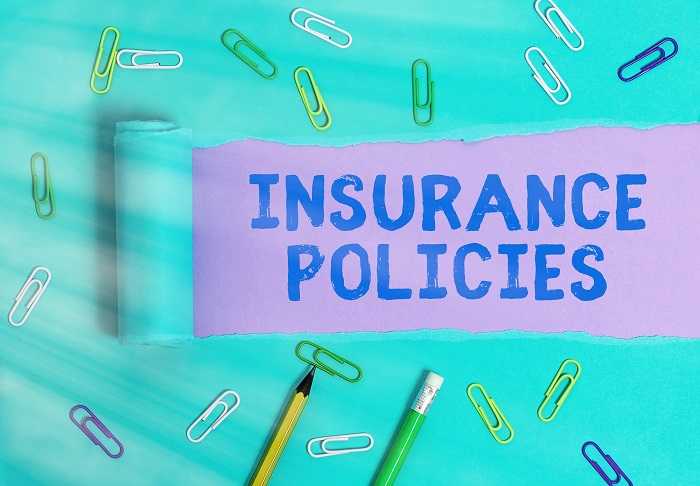The U.S. Court of Appeals for the Third Circuit recently held that six Delaware asset securitization trusts could appoint an additional servicer to collect loans in default, but violated the trust documents by transferring to the beneficial owners powers reserved for the trustee.
Posts tagged as “Third Circuit”
The U.S. Court of Appeals for the Third Circuit recently affirmed the dismissal of allegations that a mortgage lender colluded with an insurance company and insurance agent to inflate the rate of the borrowers’ force-placed hazard insurance policies in violation of various consumer protection statutes, RICO, and the common law.
Nearly 30 years after authoring an opinion that has been rejected by the Second, Fourth and Ninth Circuits and ignored by the First, Fifth, Sixth and Seventh Circuits, the Third Circuit finally acknowledged that its original interpretation of 15 U.S.C. 1692g(a)(3) of the Fair Debt Collection Practices Act was wrong.
The U.S. Court of Appeals for the Third Circuit recently held, in a case of first impression in that circuit, that a secured creditor’s failure to turn over collateral repossessed prior to the filing of the bankruptcy petition does not violate the automatic stay. A copy of the opinion in In re Denby-Peterson is available at: Link to Opinion. The debtor’s automobile was repossessed after she defaulted on her installment loan. She then filed a voluntary petition under Chapter 13 of the Bankruptcy Code, notified her creditors and demanded the return of the automobile. The creditors did not comply, and the…
The U.S. Court of Appeals for the Third Circuit recently vacated an order approving the settlement of a class action certified under Rule 23(b)(2), where the only benefit to the class was the defendant’s payment of a cy pres award to organizations that promoted data privacy. In so ruling, the Third Circuit held that the trial court did not adequately scrutinize the settlement agreement’s broad release of claims for money damages, and the parties’ designation of cy pres recipients, as required by Rule 23(e). A copy of the opinion in In re Google Inc. Cookie Placement Consumer Privacy Litigation is…
The U.S. Court of Appeals for the Third Circuit recently held that a debt collector violated the federal Fair Debt Collection Practices Act (FDCPA) when the envelope it sent to a debtor displayed an unencrypted code that revealed the debtor’s account number when scanned. A copy of the opinion in DiNaples v. MRS BPO, LLC is available at: Link to Opinion. A consumer defaulted on her credit card and the bank that issued it assigned the account to a debt collection agency. The debt collector sent the consumer “a collection letter as a pressure-sealed envelope that had a QR [or…
An entity whose principal business is to purchase debt, but did not itself collect the debt it purchased, was found to be a debt collector subject to the federal Fair Debt Collection Practices Act (FDCPA), even though the collection activity was undertaken by other entities. The Third Circuit Court of Appeals reached this decision by expanding the scope of the statute’s liability so far that it now falls into conflict with itself. Put another way, a creditor can be a debt collector of its own performing debt which it assigned to a third party to collect. But the third party…
The U.S. Court of Appeals for the Third Circuit recently held that the tolling doctrine set forth in American Pipe & Constr. Co. v. Utah does not apply where the named plaintiff in a failed class action commences a subsequent lawsuit outside the statute of limitations. In so ruling, the Court held that American Pipe only tolls the statute of limitations for unnamed members of the putative class. A copy of the opinion in Weitzner v. Sanofi Pasteur Inc. is available at: Link to Opinion. In April 2004 and March 2005, a doctor received two unsolicited faxes from a pharmaceutical company and…
The U.S. Court of Appeals for the Third Circuit held that a title insurer under Pennsylvania state law only had a duty to defend its insured lender for the covered claims alleged in the four corners of a borrower’s complaint, not for all alleged claims under the “in for one, in for all” rule. A copy of the opinion in Lupu v. Loan City, LLC is available at: Link to Opinion. A Pennsylvania borrower refinanced his home loan and mortgage with a lender. The loan transferred several times finally ending up with the current holder. A title insurer provided title…
A debt collector sent a letter to a consumer stating: “We can’t change the past, but we can help with your future.” The letter contained three payment options that were described as “discounts,” though one was merely a payment plan for the full balance. The letter advised “[i]f you pay your full balance, we will report your account as Paid in Full. If you pay less than your full balance, we will report your account as Paid in Full for less than the full balance.” The consumer filed a complaint in the U.S. District Court for the Eastern District of…
The U.S. Court of Appeals for the Third Circuit held that a statement in a letter to the effect that forgiveness of the debt “might” be reported to the Internal Revenue Service may constitute a violation of the federal Fair Debt Collection Practices Act (FDCPA). In so ruling, the Court reiterated that “even if the language in a letter is true, it can still be deceptive where ‘it can be reasonably read to have two or more different meanings, one of which is inaccurate.’” Accordingly, the Third Circuit reversed the trial court’s dismissal of the action and remanded for further…
Following the D.C. Circuit’s ruling in ACA Int’l v. FCC, the U.S. Court of Appeals for the Third Circuit recently held that an “automatic telephone dialing system” under the federal Telephone Consumer Protection Act must have the present or current capacity to store or produce telephone numbers using a random or sequential number generator, and to dial those numbers. A copy of the opinion in Bill Dominguez v. Yahoo, Inc. is available at: Link to Opinion. The plaintiff purchased a cellphone with a reassigned telephone number. The prior owner of the number subscribed to an email service provider’s “Email SMS Service,”…












